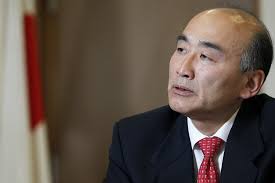

The International Monetary Fund (IMF) has announced on 23rd March, in a statement, having granted to Burundi, a loan of $ 6.9 million under the Extended Credit Facility (ECF). This new installment brings total disbursements under the ECF arrangement to 41.6 million dollars.
In completing the sixth review, The IMF also said that its Board of Directors approved also approved the authorities’ request for an extension of the current ECF arrangement to end of March 2016 and an augmentation of access by SDR 10 million (about US$13.9 million or 13 percent of quota). The additional financing and time will help strengthen the management of public finances and consolidate the country’s economic reform program. The three-year ECF arrangement for Burundi was approved by the IMF’s Executive Council on 27th January 2012.
“Progress under the ECF-supported program has been broadly satisfactory. Economic growth is estimated to have picked up slightly in 2014, while inflation declined markedly, aided by the international falling of fuel prices and prudent monetary policy. The near-term economic outlook remains challenging, and prudent policies will continue to be needed in the face of uncertainties in the external environment, and in the run-up to the 2015 national elections” said the deputy general director of the institution, Mitsuhiro Furusawa, in the statement.
The Extended Credit Facility (ECF) is a method of financing set up by the IMF to provide assistance to countries with protracted balance of payments difficulties.
The Extended Credit Facility (ECF) is the IMF’s main tool for medium-term financial support to low-income countries. It provides for a higher level of access to financing, more concessional terms, enhanced flexibility in program design, and more focused, streamlined conditionality. Financing under ECF currently carries a zero interest rate, with a grace period of 5½ years, and a final maturity of 10 years.
